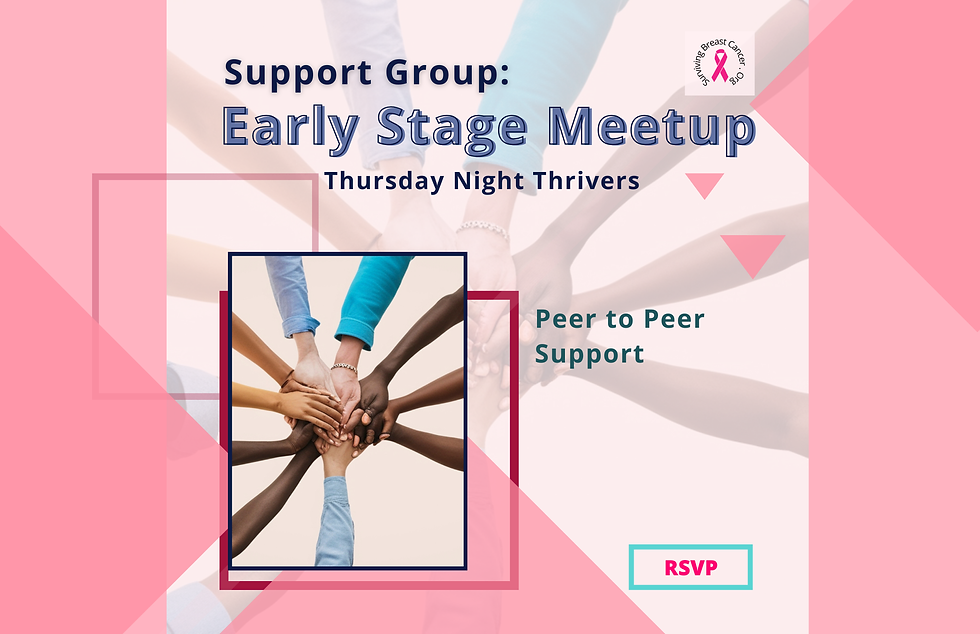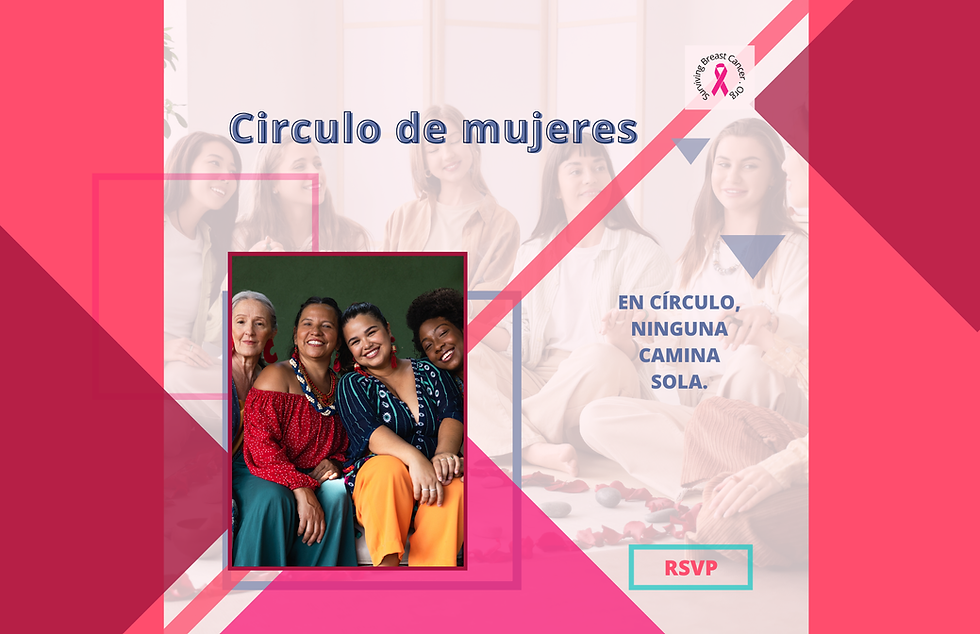Life Interrupted: Telling Breast Cancer Stories
- Surviving Breast Cancer

- Aug 7, 2022
- 6 min read
Updated: Aug 18, 2025
Wildfire Magazine Interview
With Director Paula Mozen, June 2018 Issue
A few months after I was first diagnosed with ILC breast cancer, I was speaking with a film friend and she said, “ well you know, YOU should make a film about this, you have the film awards and now you have the breast cancer credentials.” And I said absolutely not. It was a shocking diagnosis for me and I just wanted to get it over with and move on with my life. The last thing I want to do is get involved with a film, a project that I knew would take several years.

As a documentary filmmaker, two of my previous documentary films that garnered international attention, were no rewind and 3 girls I know…These documentaries viewed health and societal issues through the lens of diverse female experience. The topics covered included teenagers and HIV and young women coming of age as they are dealing with teen pregnancy, coming out gay to their friends and family and living with AIDS. As I dealt with my breast cancer, the film idea came up again and again and I kept rejecting it. I didn’t think I would be an interesting subject and I didn’t want o make a personal film. I prefer to be behind the camera, not in front of it.
As I got more distance from my diagnosis, I began to read more articles about breast cancer in the general population, and see more mention of diverse survivors who connected online and at conferences. I became aware that each breast cancer diagnosis is unique to the individual in terms of the chemistry of the tumor, how it interacts with each person’s unique body and how individual circumstances influence access to treatment, choices and longevity.
“One size does not fit all” when dealing with each individual’s circumstances and cultural context. Each person’s breast cancer situation is unique.

Breast cancer patients are often asked to make their own choices in terms of treatment. The moment the diagnosis is received, each person must gather information and make life-altering decisions under extreme emotional duress, all in a relatively short period of time. Individual circumstances are unique and yet, breast cancer is an equal opportunity disease. It doesn’t care if you’re rich or poor, black, white, Asian, or brown.
It doesn't care if you live in the North, South, East or West, in the city or in rural isolation. It does not discriminate.
It was at this point, as I was realizing all of this, that I knew I wanted to make a film. Hearing and seeing truthful stories from articulate and resilient women who have traveled the road before would be invaluable for navigating the treatments and keeping hope alive. Knowledge is power, the successful prevention and treatment of breast cancer depends on this. The film would have a purpose and that is what motivated me to finally take on the project that eventually lead to the film LIFE INTERRUPTED.

I wanted to include multiple stories, multiple perspectives to simultaneously show the uniquely personal aspects and universality of the disease process.
I also wanted to use my own experience to connect with other women-we were, after all, sisters by way of our experiences with breast cancer. I wanted to connect with women who were, in my opinion, underrepresented in the media portrayal of breast cancer: women of color, rural women and younger women. Eventually, I made the film I wish I could have see when I was diagnosed. LIFE INTERRUPTED is an open and honest film about some of the most deeply personal aspects of a breast cancer diagnosis.
Waiting in doctor’s offices, taking off my clothes to be poked and prodded and waiting for test results to make life saving/life altering decisions, took up most of my time during my diagnosis. This is not unique to me and my experience. After diagnosis, we focus in on what needs to be done. In my case, I think I disassociated from my breasts in order to “get the facts” and put information together to make intelligent decisions. I did not feel I could get all emotional about it I am as vain as the next person - believe me - but for that moment in time, when I was going though two separate breast cancer diagnosis and finally the mastectomy, I was dissociated from my breasts and my inhibitions. As the director of the film, and so I became one of the patients depicted in the film. I would not ask anyone else to do what I myself would not do in front of the camera, that just did not seem ethical or fair. It may affect the ability to show the film in more places but I do think that if you are doing a film on breast cancer, you kind need to be able to show breasts (in this case mine). These are true stories after all.
My mom was diagnosed with metastatic breast cancer at age 65. Although she had yearly mammograms, they failed to detect her tumor. I believe this failure over time lead to her being diagnosed with MBC. She had a lumpectomy as part of her diagnosis but she never had a mastectomy. Her cancer had already spread to her stomach and bones, it was not warranted for her situation. Her disease influenced my checking of my own breasts on a monthly basis which lead to me finding my first lump, which I found 2 months after a clean mammogram. We both had very dense breasts, which I believe played a big role in the failure to detect our individual tumors.

My decision to have a bilateral mastectomy was made for the following reasons combined: I was diagnosed twice within five years, I was the daughter of a breast cancer survivor, I was premenopausal and ILC is known to jump to the other breast. Though I was only diagnosed with breast cancer in my right breast, both times, I decided to go with a bilateral mastectomy.
In the film, there is another survivor whose story is told; Debi. As it turned out, Debi and I both had our fathers be very present during our cancer “journeys.” There was an instant connection between Debi and I, the way we both felt about our Dad’s as support systems. I felt very fortunate to have my Dad through both diagnoses and all the treatments. He is caring and has a background in biochemistry so has a scientific and logical mind. He also spent 12 years prior with my mom after her metastatic breast cancer diagnosis. My dad was very experienced with the whole breast cancer realm, including patient advocacy and partnering with one’s doctor to make the best choices for your own situation while keeping in mind quality of life issues. I will always be appreciative of the time and energy he spent helping me navigate my choices and treatments. He was THERE for me and I will always be grateful for the time and energy he spent helping me navigate my choices and treatments.
We are currently launching the film via festivals and community screenings.
In 2018, the film screened seven times in three countries (Germany, United States, Switzerland) for over 2500 people, received BEST DOCUMENTARY FEATURE AWARD from Long Beach Indie International Film Festival and was nominated for a Dolores Huerta Award. Most importantly, as the filmmaker, I was able to attend most of the screenings and meet with dozens of breast cancer survivors, caregivers and family members who told me what a positive impact the film had on them, a moving and humbling experience for me as both a survivor and filmmaker. AND WE ARE JUST GETTING STARTED…
In 2019 we will continue with screenings and collaborate with community organizations to bring screenings to many more people, providing HOPE for survivors as it promotes understanding and education to everyone about what it truly means to survive breast cancer.
Our ultimate call to action is:
· Take responsibility to advocate for one’s own health.
· Get exams and diagnostics when appropriate
· Make decisions from knowledge rather than fear.
· Instill hope
· For people who aren’t personally diagnosed, to support survivors in their lives and to support research and programs that directly benefit survivors.
Finally, I hope to use this film to start a foundation to provide young survivors financial resources to help them make it through their diagnosis and treatments. Putting a huge hole in the pocketbook is a well-known and experienced side effect of any breast caner diagnosis.
If you would like to see a screening in your area or want to find out more about the film, please click here
For more information about the film including trailer, press, awards and more click here
Note: This piece has been updated & republished with permission from WILDFIRE Magazine, the 2018 “Body” issue (Vol 3, No 3, Copyright (c) June 2018 by Wildfire Community LLC). More information available at wildfirecommunity.org.










